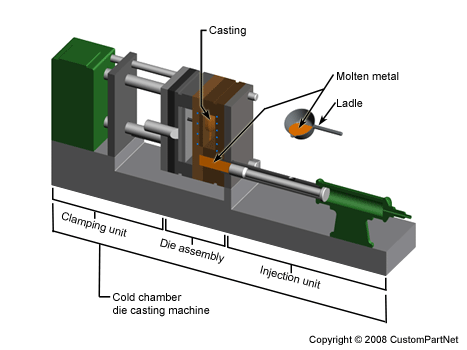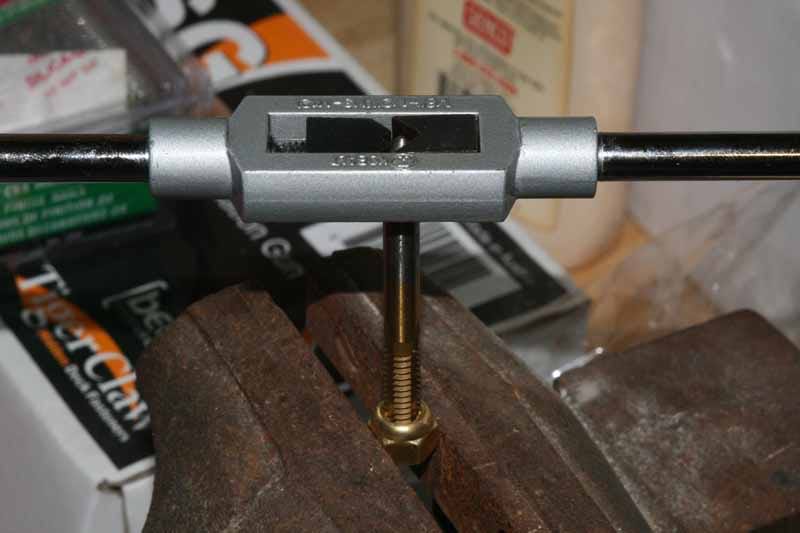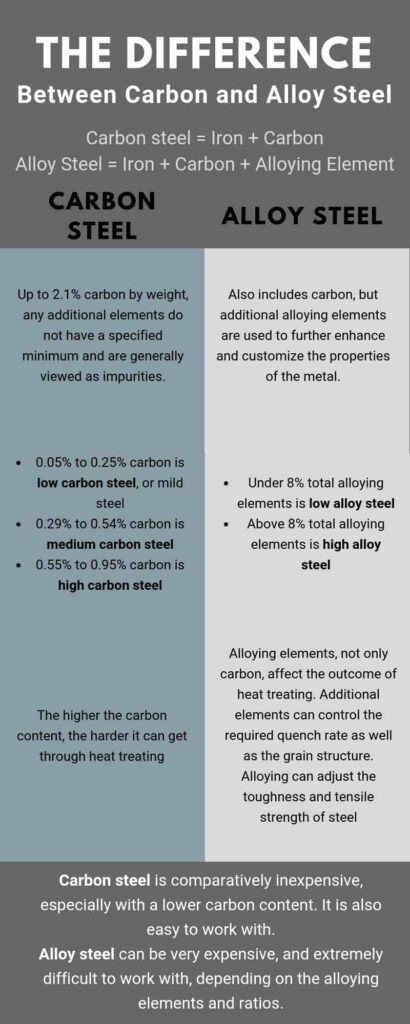Table of Contents
If you’ve ever wondered how everyday objects like car parts and kitchen appliances are made, then you’re in for a treat! Today, we’re going to dive into the fascinating world of die casting machines. These powerful and versatile machines play a crucial role in manufacturing by producing high-quality metal parts with precision and efficiency. From automotive to aerospace industries, die casting machines have become indispensable in a wide range of applications. So, let’s buckle up and explore the overview and applications of die casting machines together!
Die casting machines are like the superheroes of the manufacturing world. They have the ability to transform molten metal into solid parts in a matter of seconds. Think of them as the ultimate metal-shaping machines, capable of creating complex shapes and intricate designs with incredible accuracy. Whether it’s aluminum, zinc, or any other metal alloy, these machines can handle it all.
Now, you might be wondering where these machines are used. Well, the applications of die casting machines are vast and diverse. They are commonly employed in the automotive industry to produce engine parts, transmission components, and even intricate car body parts. Additionally, die casting machines are also widely used in the production of household appliances, such as refrigerators, washing machines, and air conditioning units. Their ability to create parts with excellent surface finish and dimensional stability makes them a popular choice in industries like aerospace, electronics, and even healthcare.
So, get ready to embark on a thrilling journey through the world of die casting machines. We’ll uncover their inner workings, explore the different types of die casting processes, and discover the incredible range of applications that these machines bring to life. Get ready to be amazed by the power and versatility of die casting machines!
Die casting machines are widely used in various industries for the production of high-quality metal parts. These machines use the die casting process, which involves injecting molten metal into a mold cavity under high pressure. The molten metal solidifies to form the desired shape of the part.
Die casting machines come in different types, including cold chamber machines and hot chamber machines. Cold chamber machines are suitable for alloys with high melting points, while hot chamber machines are ideal for alloys with low melting points.
The applications of die casting machines are vast. They are commonly used in automotive manufacturing for producing engine components, transmission parts, and body panels. Die casting machines are also used in the production of consumer electronics, such as smartphones, laptops, and tablets.
In summary, die casting machines play a crucial role in various industries, enabling the efficient production of complex metal parts with high precision. Their versatility and reliability make them an indispensable tool for manufacturers worldwide.
Die Casting Machines: Overview and Applications
Die casting machines are an essential part of the manufacturing industry, particularly in the production of metal components. These machines play a crucial role in shaping and forming various metal alloys into intricate shapes and designs. In this article, we will provide an in-depth overview of die casting machines, explore their applications, and discuss their importance in the manufacturing sector.
What are Die Casting Machines?
Die casting machines are specialized equipment used in the process of die casting. Die casting is a manufacturing technique that involves injecting molten metal into a mold, or die, under high pressure. This process allows for the production of complex and precise metal components with excellent dimensional accuracy and surface finish.
Die casting machines are designed to facilitate the die casting process efficiently. They consist of a central casting unit that contains the molten metal, a mold, and a clamping unit. The molten metal is injected into the mold cavity through a cold chamber or hot chamber system, depending on the material being used. The clamping unit ensures that the mold remains securely closed during the entire process.
The Components of Die Casting Machines
Die casting machines are composed of several key components that work together to achieve the desired results. These components include:
1. Casting Unit: This unit contains the molten metal and is responsible for injecting it into the mold.
2. Mold: The mold, also known as the die, is a precision tool that determines the shape and dimensions of the final product.
3. Clamping Unit: The clamping unit keeps the mold securely closed during the injection process to prevent any leakage or deformation.
4. Cooling System: To solidify the molten metal quickly, die casting machines are equipped with a cooling system that helps regulate the temperature of the mold.
5. Ejection System: Once the metal has solidified, the ejection system removes the finished component from the mold.
Applications of Die Casting Machines
Die casting machines find applications in various industries due to their ability to produce complex and high-quality metal components. Some common applications include:
1. Automotive Industry: Die casting machines are extensively used in the automotive industry for the production of engine components, transmission parts, and other critical components. The high precision and dimensional accuracy of die-cast parts make them ideal for automotive applications.
2. Aerospace Industry: The aerospace industry relies on die casting machines for manufacturing lightweight yet strong components used in aircraft and spacecraft. Die-cast parts offer excellent strength-to-weight ratios, making them suitable for aerospace applications.
3. Electronics Industry: Die casting machines are employed in the electronics industry to produce intricate and precise metal parts used in electronic devices such as smartphones, laptops, and household appliances. The high production efficiency of die casting machines makes them a preferred choice for electronics manufacturers.
4. Consumer Goods: Die casting machines are also used in the production of consumer goods like furniture, toys, and kitchen appliances. The versatility of die casting allows for the creation of intricate designs and shapes that enhance the aesthetics of these products.
The Advantages of Die Casting Machines
Die casting machines offer several advantages that make them widely used in the manufacturing industry. Some key advantages include:
1. High Efficiency: Die casting machines enable the production of large quantities of components with minimal cycle times, making them highly efficient in mass production.
2. Dimensional Accuracy: Die-cast parts exhibit excellent dimensional accuracy, ensuring precise fit and assembly in various applications.
3. Complex Geometries: Die casting allows for the production of intricate and complex shapes that would be challenging to achieve using other manufacturing processes.
4. Cost-Effectiveness: Die casting machines offer cost savings in terms of material usage, labor, and tooling costs. The high production rates also contribute to overall cost-effectiveness.
In conclusion, die casting machines are an integral part of the manufacturing industry, enabling the production of complex and precise metal components. Their applications range from automotive to aerospace, electronics to consumer goods. With their high efficiency and ability to produce intricate designs, die casting machines continue to play a significant role in shaping the modern manufacturing landscape.
Key Takeaways: Die Casting Machines
- Die casting machines are used to manufacture metal parts with high precision.
- They work by injecting molten metal into a mold under high pressure.
- Die casting machines are commonly used in automotive and aerospace industries.
- They offer advantages like fast production, excellent surface finish, and high dimensional accuracy.
- Die casting machines are versatile and can produce complex shapes with ease.
Frequently Asked Questions
What are die casting machines?
Die casting machines are specialized industrial machines used for the process of die casting. Die casting is a manufacturing process in which molten metal is injected into a mold, called a die, under high pressure. The metal solidifies within the die and takes the shape of the mold cavity. Die casting machines are designed to handle this process efficiently and effectively.
These machines typically consist of a hydraulic system that provides the necessary pressure to inject the molten metal into the die. They also include a furnace or crucible to melt the metal, a plunger or piston to inject the metal into the die, and a cooling system to solidify the metal within the die. Die casting machines can vary in size and capacity depending on the specific application.
What are the applications of die casting machines?
Die casting machines have a wide range of applications in various industries. They are commonly used in automotive manufacturing to produce components such as engine blocks, transmission cases, and wheel rims. Die casting machines are also utilized in the production of consumer electronics, such as smartphones, laptops, and tablets.
Other industries that rely on die casting machines include aerospace, telecommunications, medical equipment, and household appliances. The versatility of die casting machines allows for the production of complex and precise parts with high dimensional accuracy and excellent surface finish.
How do die casting machines work?
Die casting machines work by following a specific sequence of operations. First, the metal is melted in a furnace or crucible, typically using electric or gas heating. Once the metal reaches the desired temperature, it is injected into the die under high pressure through a plunger or piston.
The metal fills the mold cavity and solidifies rapidly due to the cooling system in the die casting machine. After the metal solidifies, the die opens, and the finished part is ejected. The process is then repeated for the next cycle.
What are the advantages of using die casting machines?
There are several advantages to using die casting machines for manufacturing. Firstly, die casting allows for the production of complex shapes with high precision and tight tolerances. The process ensures consistent quality and dimensional accuracy in the manufactured parts.
Die casting machines also offer high production rates, enabling the efficient mass production of parts. The machines are capable of producing large quantities of parts in a short period, making them cost-effective for high-volume production. Additionally, die casting machines provide excellent surface finish and can produce parts with thin walls and intricate details.
What considerations should be made when selecting a die casting machine?
When selecting a die casting machine, several factors should be taken into consideration. The size and weight of the parts to be produced are important factors in determining the machine’s capacity. The desired production volume and cycle time also play a role in selecting the appropriate machine.
The type of metal to be cast, such as aluminum, zinc, or magnesium, should be considered as different metals may require specific machine capabilities. The level of automation and control features are also important, as they can affect the efficiency and productivity of the die casting process. Lastly, the cost of the machine and the overall return on investment should be evaluated before making a final decision.
Final Summary: A Closer Look at Die Casting Machines and Their Applications
In this article, we delved into the world of die casting machines, exploring their overview and applications. From the initial understanding of what die casting entails to the various types of die casting machines available, we’ve covered it all. Now, as we conclude our exploration, let’s recap the key takeaways.
Die casting machines play a crucial role in the manufacturing industry, enabling the production of complex and high-quality parts with great precision. These machines use molten metal that is injected into a mold, resulting in the creation of intricate shapes and designs. By utilizing the force of high pressure, die casting machines ensure that the final products exhibit exceptional strength and durability.
When it comes to applications, die casting machines find wide usage in industries such as automotive, aerospace, electronics, and more. Their ability to produce large quantities of parts quickly and efficiently makes them ideal for mass production. From engine components and transmission housings to electronic enclosures and even decorative items, die casting machines offer a versatile solution for various manufacturing needs.
In conclusion, die casting machines are a cornerstone of modern manufacturing, providing a cost-effective and efficient method for producing high-quality parts. Their versatility and ability to create intricate designs make them indispensable in a wide range of industries. By harnessing the power of die casting machines, manufacturers can achieve exceptional results while meeting the demands of today’s competitive market. So, whether you’re in the automotive, aerospace, or any other industry that requires precision and efficiency, die casting machines are a valuable tool to consider for your manufacturing needs.
Request a quote today!
[contact-form-7 id="1578" title="Contact form"]
Please compress the file into a ZIP or RAR file before uploading. Alternatively, send through your RFQ by email.
enquires@unitymanufacture.com





